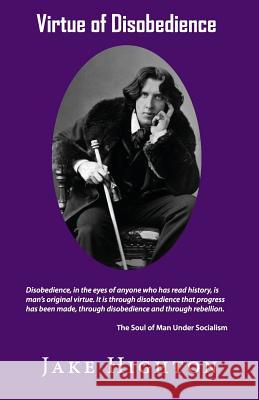Virtue of Disobedience » książka
Virtue of Disobedience
ISBN-13: 9780996136525 / Angielski / Miękka / 2016 / 226 str.
Most of these columns appeared in the weekly Sparks Tribune and the Reno News & Review. Thanks to both papers for courageously publishing columns and articles that no other newspaper or magazine would have printed. Oscar Wilde, one of my all-time favorite people in history. Brilliant, witty, wise. Epigramist. Versatile: playwright, short-story writer, novelist, poet, social critic, essayist and book reviewer. Marvelous conversationalist. Classicist. Scholar. Dandy. Esthete. Humanist.
Oscar Wilde, one of the greatest multi-faced geniuses ever to grace the Earth.
On entering America in 1882 for a tour he purportedly told a custom official: "I have nothing to declare except my genius." Whether fact or fiction, it is so typical of what Wilde might have quipped.
He was right about Shakespeare, "the most purely human of all the great artists."
He wrote truly: "Out of the carpenter's shop at Nazareth had come a personality infinitely greater than any made of myth or legend. 'He that is without sin among you let him first cast a stone at her, ' Jesus said. It is worthwhile living to have said only that."
He relates prison sorrow in his "The Ballad of Reading Gaol" "And alien tears will fill for him / Pity's long broken urn. / For his mourners will be outcast men.
Most of these columns appeared in the weekly Sparks Tribune and the Reno News & Review. Thanks to both papers for courageously publishing columns and articles that no other newspaper or magazine would have printed.Oscar Wilde, one of my all-time favorite people in history. Brilliant, witty, wise. Epigramist. Versatile: playwright, short-story writer, novelist, poet, social critic, essayist and book reviewer. Marvelous conversationalist. Classicist. Scholar. Dandy. Esthete. Humanist.
Oscar Wilde, one of the greatest multi-faced geniuses ever to grace the Earth.
On entering America in 1882 for a tour he purportedly told a custom official: “I have nothing to declare except my genius.” Whether fact or fiction, it is so typical of what Wilde might have quipped.
He was right about Shakespeare, “the most purely human of all the great artists.”
He wrote truly: “Out of the carpenter’s shop at Nazareth had come a personality infinitely greater than any made of myth or legend. ‘He that is without sin among you let him first cast a stone at her,’ Jesus said. It is worthwhile living to have said only that.”
He relates prison sorrow in his “The Ballad of Reading Gaol”: “And alien tears will fill for him / Pity’s long broken urn. / For his mourners will be outcast men.











